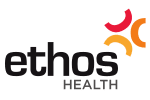Truth about superfoods

‘Superfoods’ is a term given to foods packed with nutrients that may confer health benefits as a result.
Examples of foods often called superfoods: Blueberries, Salmon, Almonds, Oats, Avocado, Broccoli, Spinach, Garlic, Red Wine, Tea
The term Superfood is used widely in marketing, with claims such as:
- Protect against cancer and heart disease
- Lower cholesterol
- Protect the organs from toxins and improve digestive health
- Longer life!
The term “superfoods” is at best meaningless and at worst harmful. This had led to the European Union prohibiting the use of the word superfood in the marketing of products.
Is what I am reading the truth?
Any food can be made to sound healthy or not. For example, in two separate articles on Superfoods, one included yoghurt as a superfood, the other stated yoghurt was harmful.
Here are 2 articles talking about yoghurt but have completely different meanings.
Yoghurt is a Superfood that:
- Contains “friendly bacteria” which populates the intestines, helping the body fight off infection
- Is a rich source of calcium, potassium, riboflavin, magnesium and phosphate
Yoghurt is harmful that:
- Can be damaging to the teeth. Bacteria in the milk can react with sugars in the food, triggering acid production and enamel erosion.
What does Ethos Health recommend?
The concept of superfoods can take the focus off the importance of maintaining an overall balanced diet.
Total diet is the key to good health and far more important than one or two items in it. A daily dose of vegetables, fruit, wholegrain breads/cereals, low fat dairy, meat/meat alternatives.
For more information, contact us here or book an online appointment






